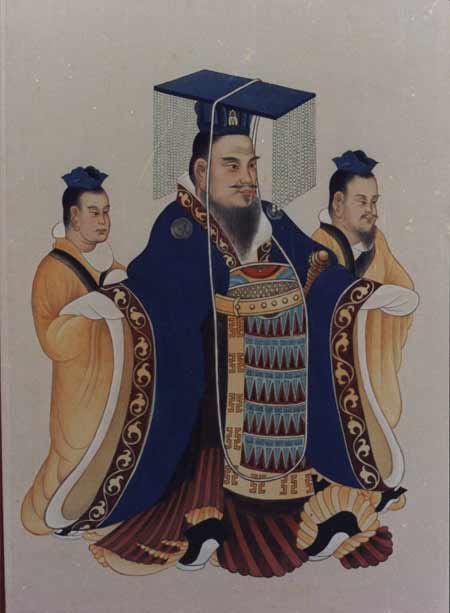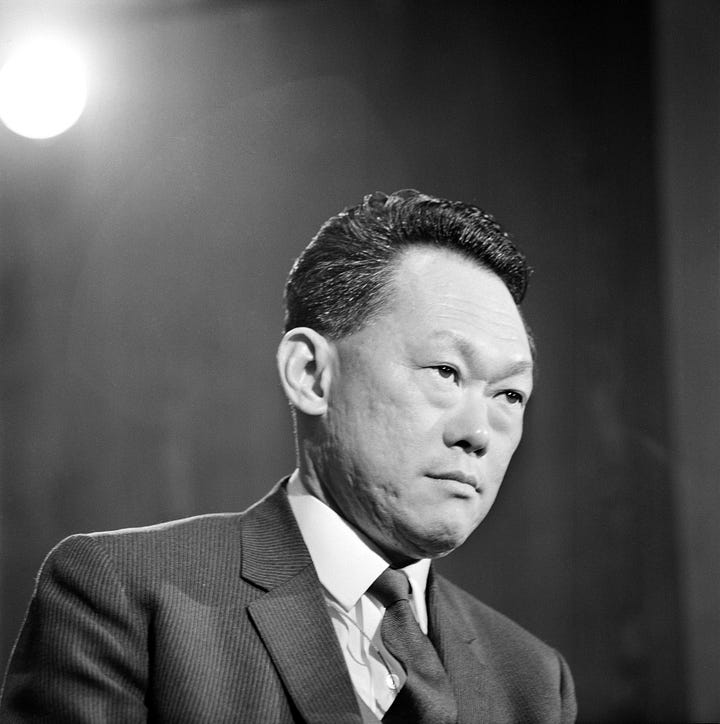The Dignity of the Responsible Individual
And the Dangerous Evil of Radical Individualism
I
Social cohesion matters. It matters that a society’s members share some basic views of what is valuable and how to behave, otherwise it will be radically riven, unstable, prone to civil conflict. Social cohesion also matters when a society is under threat from outside. The centre needs to be strong, able to rely on internal compliance and so to react quickly and effectively in warding off external enemies. That is many tend to start off by organising themselves politically around a monarch—a single, unrivalled ruler. China’s ancient and medieval history of civil wars and subjection to hostile invasions, for example, explains why Confucian thinking lays such a very heavy emphasis on filial piety—the duty of children to heed parents, of the ruled to obey rulers. For sure, the wise, virtuous Confucian emperor will listen to his people and govern in their interest. But what happens when the emperor is not virtuous, ignores his people, and governs to suit himself? What about the rights of the ruled against the ruler? Confucius falls silent.


Today, the contrast between east Asian countries influenced by Confucianism and those parts of the world fundamentally shaped by western European civilisation is stark. Western countries—or at least their recently dominant elites—now take social cohesion almost entirely for granted. Attempts to tell a cohesive national story—as undertaken by the National Museum of Singapore, for example—are dismissed by intellectuals on the Western left as ‘nationalist’ or fascist’. Concern about the socially divisive effects of the mass immigration of people from culturally alien countries is commonly dismissed as ‘racist’. Instead, the value of the liberty of the individual—autonomy—takes almost exclusive centre-stage. This liberty is often understood simply in terms of the unfettered expression of the self—the brave, defiant self, taking her stand over and against traditional convention and authority. In the West, liberty tends to become filial impiety, and the mission of the artist is centrally to offend and shock—to ‘push the boundaries’ of acceptable taste. Take for example, the 1998 work of the ‘Young British Artist’, Tracey Emin, which consisted of the staging of Emin’s squalid bed. More broadly, in public discourse, liberty is made to amount to the right of the individual to choose—say, assisted suicide—regardless of such social effects as the exposure of the vulnerable to the risk of abuse and the weakening of the common sense of duty to support those in adversity. In the contemporary West, the dignity of the individual is often identified simply with absolute liberty. Esteem for the individual has degenerated into radical individualism.
II
The roots of today’s Western individualism are usually traced back to the Enlightenment, the intellectual movement of the 18th and early 19th centuries. This is supposed to have involved the revolutionary repudiation of religious authority, dogma, and superstition in favour of the enlightened individual’s following the dictates of reason. The philosopher, Immanuel Kant, gave classic expression to this view in a 1784 essay entitled, “Answering the Question: What is Enlightenment?”. To this, Kant gave the answer, “Sapere Aude”—‘Dare to know’ or ‘Have the courage to reason and think for yourself’.
At the same time, both in the new United States and in revolutionary France, the idea of the individual possessing certain universal, human rights—for example, to freedom of speech, religion, and the ownership of property from interference by the state—gained public traction, most famously in the France’s 1789 Declaration of the Rights of Man and the Citizen.
In fact, the Enlightenment is better viewed as a development of certain elements in Europe’s Christian heritage than a wholesale throwing-off of it. The idea of the admirable, heroic individual, standing out from the crowd and against prevailing convention has its earliest roots in the biblical tradition of the isolated prophet. In the very first book of the Bible, God calls Abraham out of his settled, urban life in Ur of the Chaldees to become a migrant to a foreign land, in order to generate a new nation. Later, God calls others to ‘prophesy’—to swim against the current, speak unpopular truths, and suffer the costs. So unpopular was the prophet Jeremiah, for example, that he was reduced to spending a night in the stocks. Fed up, he complains to God thus:
You deceived me, Lord, and I was deceived;
you overpowered me and prevailed.
I am ridiculed all day long;
everyone mocks me.
Whenever I speak, I cry out
proclaiming violence and destruction.
So the word of the Lord has brought me
insult and reproach all day long.
But Jeremiah finds that he cannot contain the truths he has been called to speak:
But if I say, “I will not mention his word
or speak anymore in his name,”
his word is in my heart like a fire,
a fire shut up in my bones.
I am weary of holding it in;
indeed, I cannot.[1]
The prophet par excellence, of course, was Jesus of Nazareth, whose truth-telling led to his lonely agonising in the Garden of Gethsemane, desertion by his friends, and crucifixion by those he threatened.[2] His terrible isolation echoed through his cry from the cross, “‘Eli, Eli, lema sabachthani?’ that is, ‘My God, my God, why have you forsaken me?’”.[3]
Observe, however, that the individuality of Jesus and the prophets was not formed by mere self-expression. It does not assume that the self is significant just as such. Rather, it assumes that the self is made significant by becoming a mouthpiece of important truths that other people need to hear but are ignoring. The individual is made significant by responding to the call of God to speak his Word, at once of judgement and salvation, of criticism and rescue. The individual matters insofar as he or she responds to, and serves, truths important for human flourishing. What he says others may find offensive and shocking, but his purpose is not to offend and shock. His purpose is to speak important, salutary truths. At the heart of this individuality lies, not at all the self-assertive ego, but the subservient self, responsive to a higher moral order and the call of God to defend and promote it. The individual stands out and speaks forth out of love for his community and for the sake of its welfare. He is not radically individualist.
III
In the Western, Christian tradition, the high dignity of the individual consists in his being called by God to give his life to what is true and just. This is a responsible individuality that takes its cue from an objective moral order. Because the individual is responsible, first and last, to God and his given moral order—and not to social convention or the state—it is important that his freedom to act and speak be given strong protection from undue interference. Hence the distinctively prominent place occupied by legal rights in the West.

However, this Christian tradition is not the only contender for the West’s soul. Radical individualism is also in the field. This considers the expression of the subjective, authentic self—untethered, indeed hostile to any objective moral order—as the height of dignity. It vaunts the individual as one who defines himself as the wrecker of tradition—the spitter on sacred cows—and in whose hands rights become weapons for the assertion of the ego’s wants. Upon the defeat of this irresponsible individual depends the salvation of the West.
This is an abbreviated version of a chapter in The Best of Our Inheritance: Restoring Our Foundations, published by the Alliance for Responsible Citizenship (ARC). The book may be pre-ordered here: https://www.arcforum.com/store/p/the-best-of-our-inheritance-arc-research
NOTES
[1] Jeremiah 20:7-9 (New International Version).
[2] See, for example, Matthew 26:36-27:45.
[3] Matthew 27:46.


